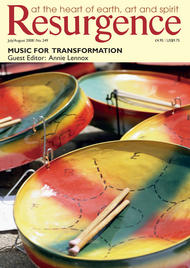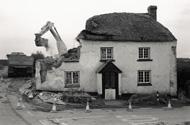REAL ENGLAND is a snapshot of a changing country. Looking into our national identity through many different windows, Paul Kingsnorth paints a vivid picture of how England is on the cusp of changes that have major implications for all of us. He takes us on a tour of a country that many of us remember and in some places still know, but which may not exist for very much longer: from inside once-traditional pubs and breweries, to the canals that formed the arteries of the Industrial Revolution; from the orchards that sustain thousands of varieties of apple, to the remaining market towns that retain their character; and from the family-owned hardware store, to the fields of East Anglia.
Replaced by chain pubs and mass-produced lager, smothered in luxury flats, seized by supermarkets, cloned with branded stores, grubbed-out to farm subsidies and trashed with chemicals and vast agri-machines, many of the things that make England special and unique are about to be consigned to history.
Should we care? Does the loss of our orchards, wildlife, shops and breweries matter? Kingsnorth mainly leaves the answer to this question to his readers. “Preserving these things, ensuring they continue to live, would not help us in our slavish and unquestioning journey up the global economic ladder. None of them makes quick bucks, and some make no bucks at all. And when we finally become a nation in which that is reason enough to shrug our shoulders and let them all go… Well, you decide whether that makes us a global success or local failure, or whether the two are strangely interdependent.”
On the one hand Kingsnorth exposes the consequences of being taken ever closer to the vortex of globalisation and its suction towards the lowest common denominator for everything – whether apples, shops or even towns. On the other hand he portrays how pockets of resistance are often dismissed as quaint anachronisms at best, or, worse, as obstacles to progress.
I was left thinking that this is an important book, because it is not only about where we live, but also about how we live, who is in charge and what we really want. It reminds me of how our personal sense of belonging is being eroded by giant corporations, and how the pantomime politics that masquerades as democracy utterly fails to take any view at all on some of the most important questions that confront our fast-changing society.
Kingsnorth takes a close look at his subject-matter. I found the effect of this was not to drown me with excessive detail, but to more powerfully put across the big picture of change that is so fundamentally shaping the country I live in. I was left wondering how the archaeologists of the future would write about this period and how they might place it in the great procession of historic events that have shaped England. Would the effects of globalisation on the land, people and towns be up there with the Roman Invasion? I think they might.
Perhaps the most powerful thought that stayed with me at the end of this book was about what I was prepared to do about the changes that are swamping where I live, eroding a lot of local, regional and even national ‘specialness’. Real England made me think hard about what I was going to do. As well as campaigning, there were a few lifestyle ideas I took away. One has already become a habit: it is to seek out as many pubs as I can that still sell Hook Norton ales.
Tony Juniper steps down as Director of Friends of the Earth this year. He will continue with work to bring about more sustainable societies.








